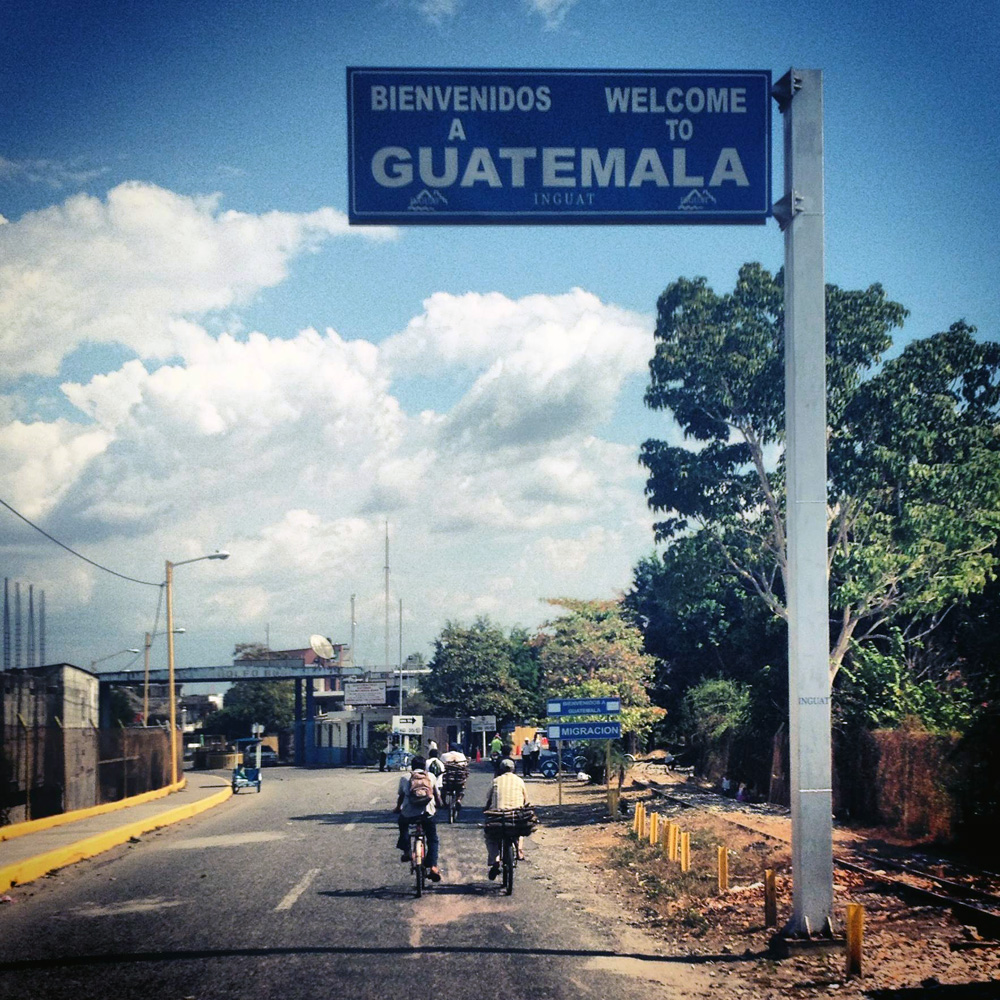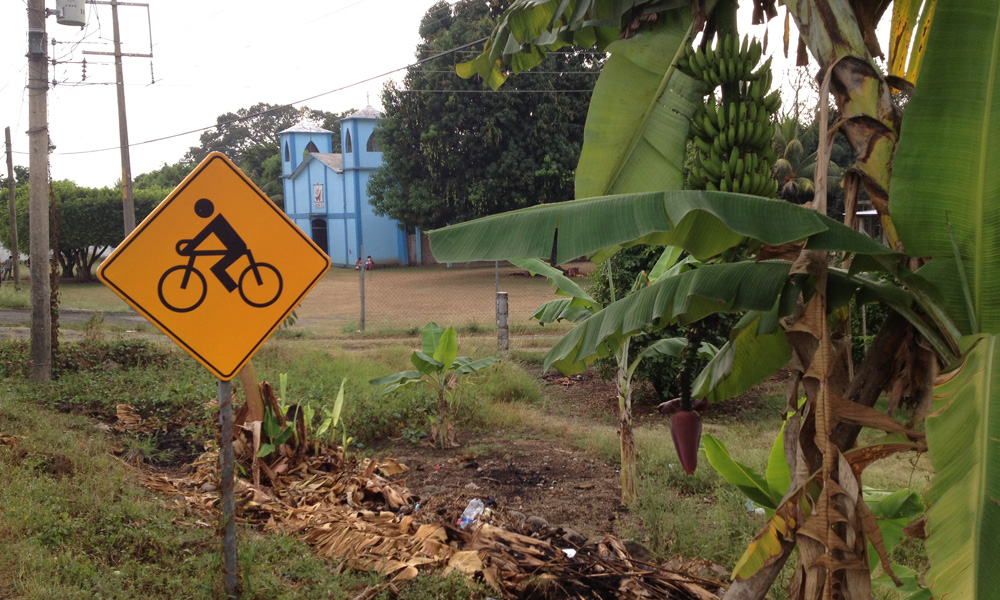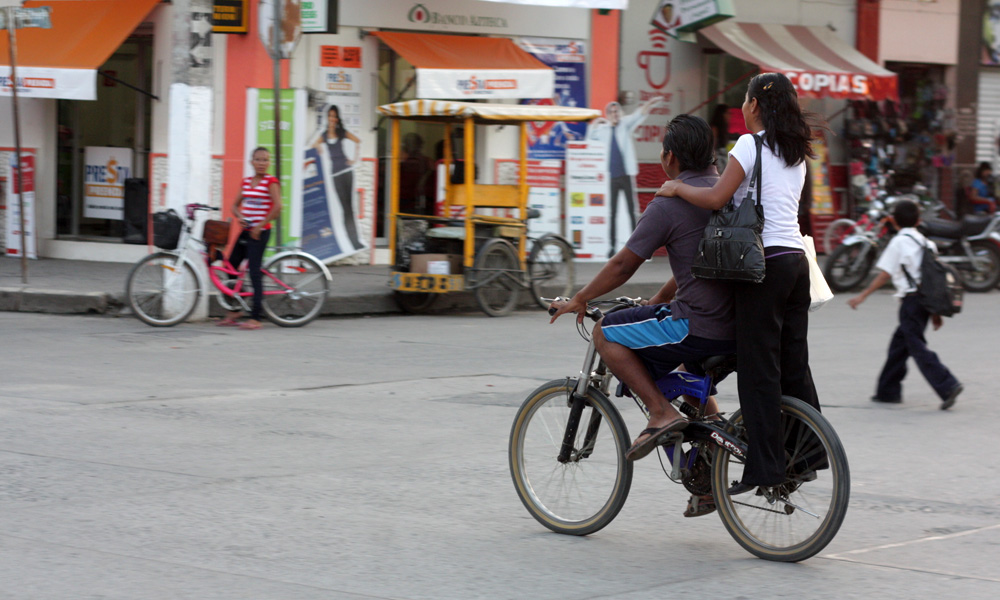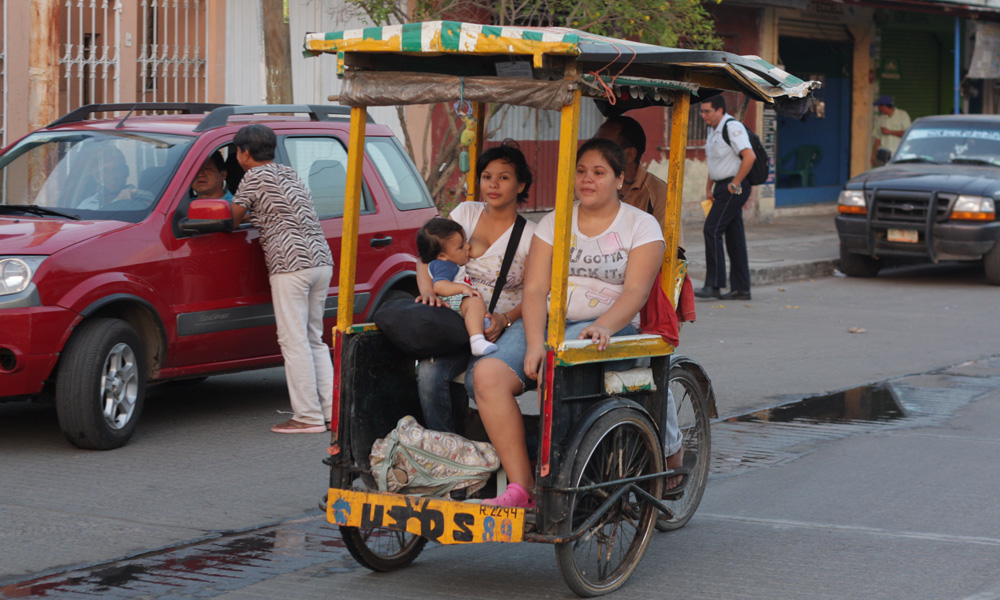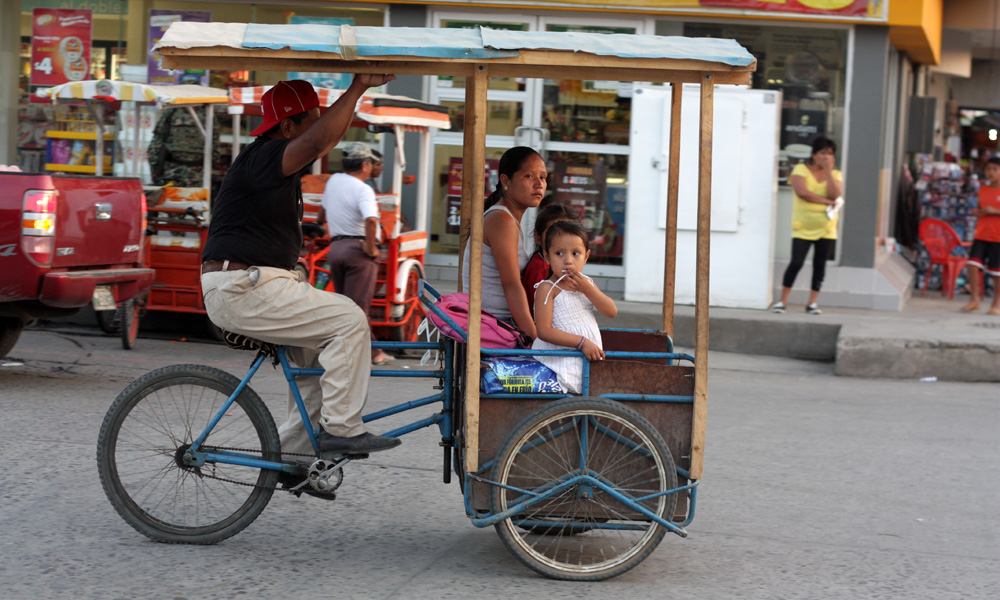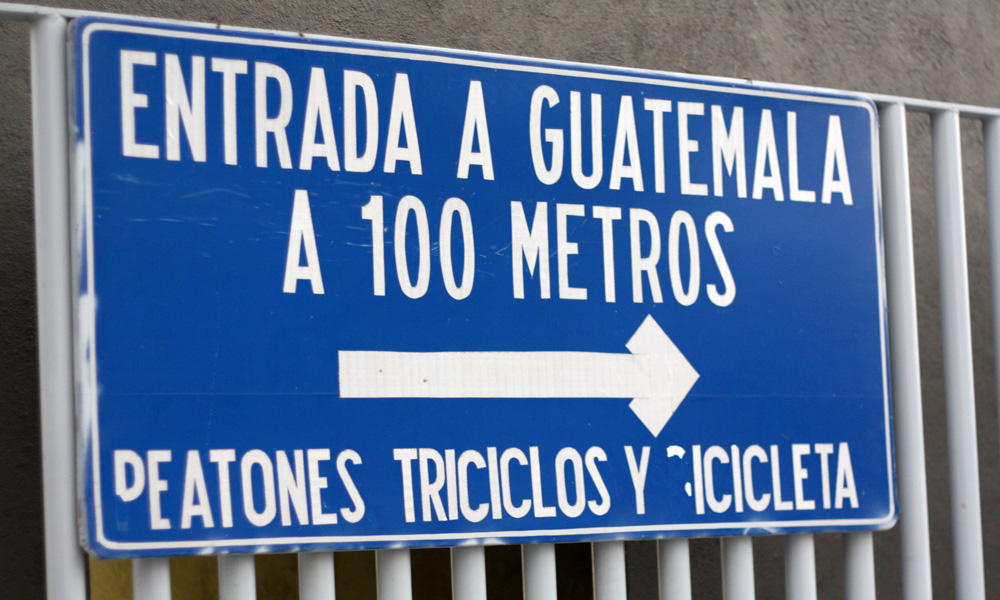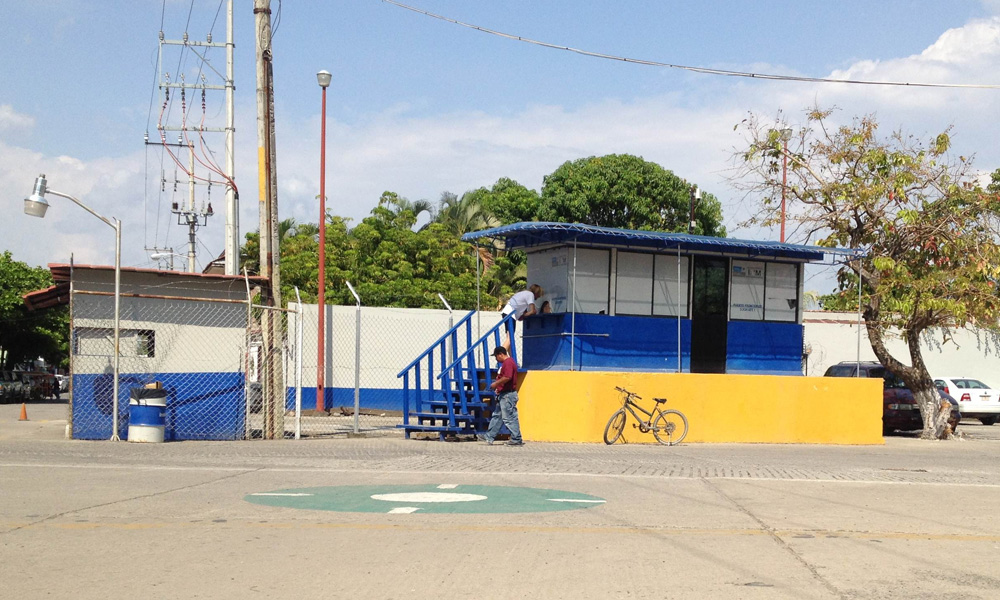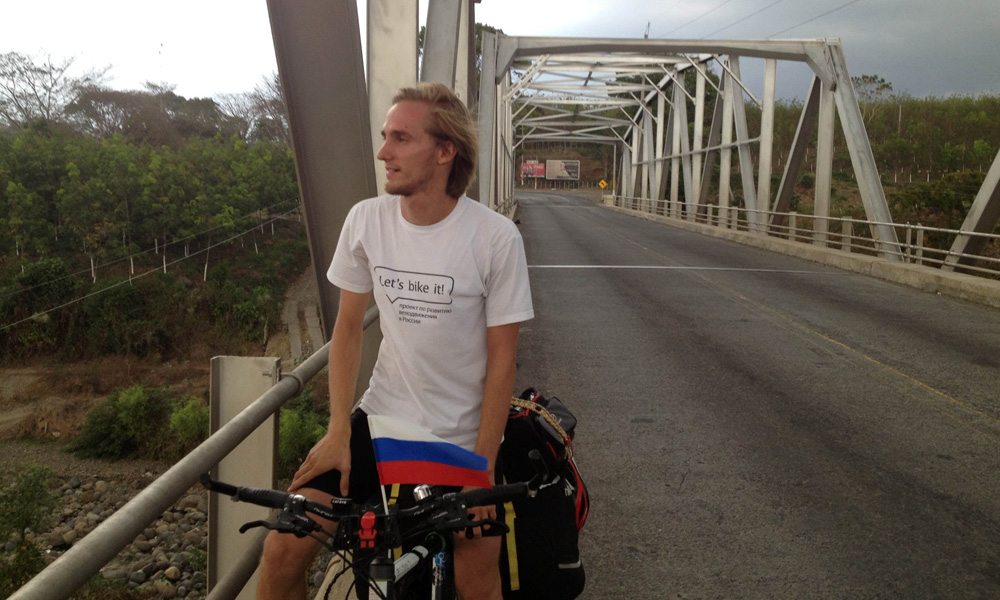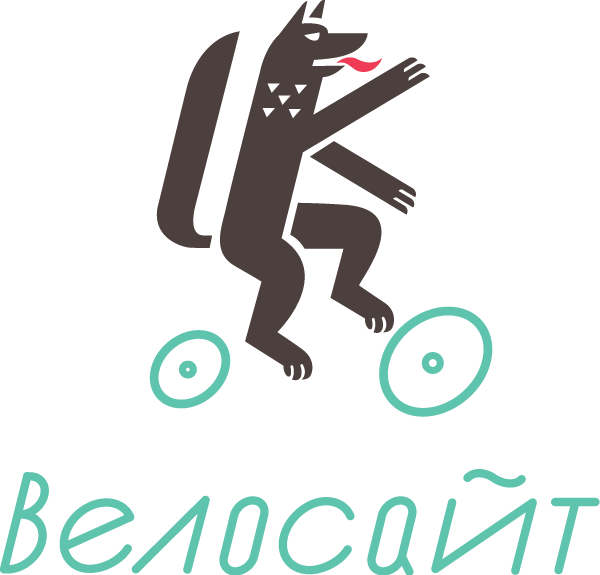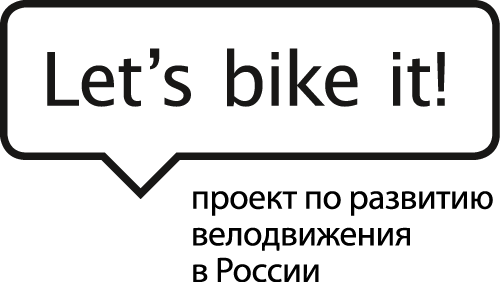We will tell you something about the surprises of our last Mexican city, about smuggling and our first kilometers through the second country in our journey – Guatemala.
Yesterday we arrived in Ciudad Hidalgo, a small town at the Guatemalan border. There we surprisingly saw road signs for bicycle lanes and dozens of locals who were using bicycles.
Imagine our surprise, when we drove into the city itself. Almost immediately we started to call it “little Copenhagen”. It felt like half of the locals were biking: women with foodstuff bags, men carrying everyday loads, motorcades of schoolchildren, whole families with their children.
There were various bicycle-carts and bicycle-taxies, so called “tricycles”. We’ve never seen so natural bicycle activity yet, so we’ve made a lot of video.
In this “Bicyclic Paradise” we also were on bikes, but we were very noticeable, that’s why almost every passerby indicated us on Guatemala and shouted “That way!” But we were seeking lodging for the night in the Mexican territory.
We reached the river that borders the two countries. It wasn’t very wide, only 150 meters, so we could see Guatemala well. There wasn’t much water in the river; locals were wading with boxes of soft drinks and other goods. One of the participants of this activity said: “It’s smuggling, here goods are much cheaper than there”. Then he offered us transportation on special raft in order “not to put a stamp in the passport”. But when we answered that we are going to cross the border officially just to have this stamp he was very surprised.
We feasted our eyes on this madness for a while and set off to the customs station, because we needed to learn the conditions in order not to waste time next morning. The entry to the customs zone was located at a distance of three blocks from the central square. Residents of this Mexican town often visit Guatemala on bikes, so there was separated custom for bicyclists and pedestrians. We thought that it would be easy.
Day 53.
We had our dinner in the morning and then headed for the bridge which led to Guatemala. We drove into the customs’ territory with other bikes and almost missed passport control. The thing is that Mexicans and Guatemalans are driving to and fro just like usual bikers. Nobody looks at your passport, you just have to pay 1 peso to cross the bridge. We had to ask where we could get stamps for leaving Mexico. One of the workers pointed us on the isolated booth without any identification marks.
A woman in the box almost put stamps, but then suddenly asked:
— Have you paid the dues?
— Which dues? — wondered I.
— Every tourist have to pay 295 peso (nearly 20 dollars) while leaving Mexico since November.
— For what? — now Stas joined the conversation. His voice was a bit heightened.
— Formerly they were included in the air tickets, but now you have to pay them in a bank. But if you want you can pay here.
— We haven’t got cash.
— But there are so many people in the bank. It’d be better if you pay now.
— Let’s haggle, — offered Stas, — How much do we have?
— Nearly 120 peso.
— No, we can’t haggle like that.
— Let’s haggle, — offered Stas, — How much do we have?
— Nearly 120 peso.
— No, we can’t haggle like that.
We headed for town gates, but I realized that our tickets have already included dues, because they had been bought for both ways. We tried to explain it to the border officer but he remained adamant.
There was a line of bikers and motorbikes near the custom zone.
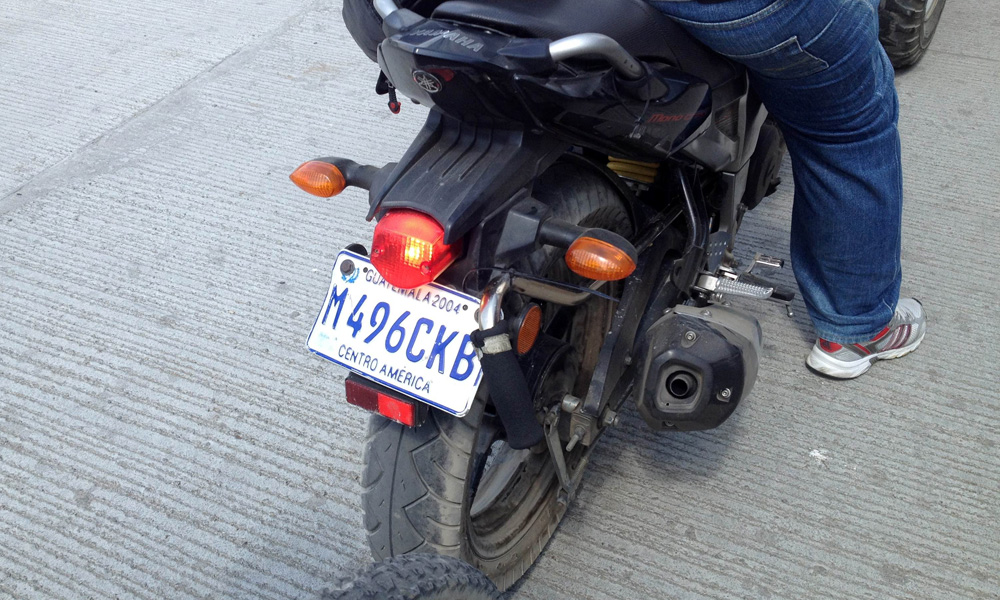
— Take off your bags.
— Why?
— It’s a customs control.
— We haven’t been anywhere, we need to go to the bank to pay your dues, — protested I.
— No questions, I have to check your bag.
— Don’t you see how complicatedly it attached?
— I have to check your bags.
— What the hell is happening here? — I couldn’t restrain myself, — And after that you want Mexico to become the fifth country according to the number of tourists?
— What did you say?
I have been unfastening my bag.
— Relax, — Stas tried to set my mind at rest.
— What are you? — asked customs officer.
— I’m a journalist.
— Will you tell about it?
— Of course. So, here it is, look! — my bag felt on the table.
— What do you have here?
— Heaps of dirty clothes.
— Ok, you can go.
As we entered the town we headed straight for the bank, but the ATM refused to pay cash. We went to the other bank’s ATM. To withdraw 600 peso we had to pay the commission (70 peso for the Mexican bank and 100 rubles for Russian). Then nearly 40 minutes I was standing in the queue inside the bank, while Stas was chatting with a taxi driver about the Central American gangsters and tried to teach him some Russian words.
We couldn’t pass the cheque. While customs officer sighed “Mala suerte!” (Spanish, “bad luck”) we just joked that she was playing games on her laptop and that’s why she couldn’t give us back out passports.
To leave Mexico we had to spend 3 hours and waste 1500 rubles (50 dollars). But the gates to Guatemala had been opened. We were moving from winter to summer, because in Guatemala, summer lasts from November to April.
— Wait! Wait! You’ve forgotten to put an entry stamp! — we were so happy with our small victory, that we almost missed Guatemalan frontier point. We had been stopped by bicycle-taxi drivers, — You need to come here.
— Here? — asked we, looking at the small modest building without any identification marks.
The whole process took nearly 5 minutes. Then we chatted with one girl from tourists agency, she asked us a lot of questions and even gave us a map of the country.
— Is it dangerous here? — I asked.
— No, not so much, there had been many bikers.
— Did someone tried to count how many of them had returned? — joked Stas.
Because of the “Mexican accidents”, our plan to bike 92 km per day failed. We went to the bank, withdrew 1000 quetzals (it’s a local currency named after the bright long-tailed bird) and headed for the town, which was located in 36 km away from the border. There was a downpour, beautiful forests and a guard with gun in the hotel ahead. Very soon we’ll tell you about all of this. But now it’s time to sleep.
Translated by: Alia Z.
comments powered by HyperComments